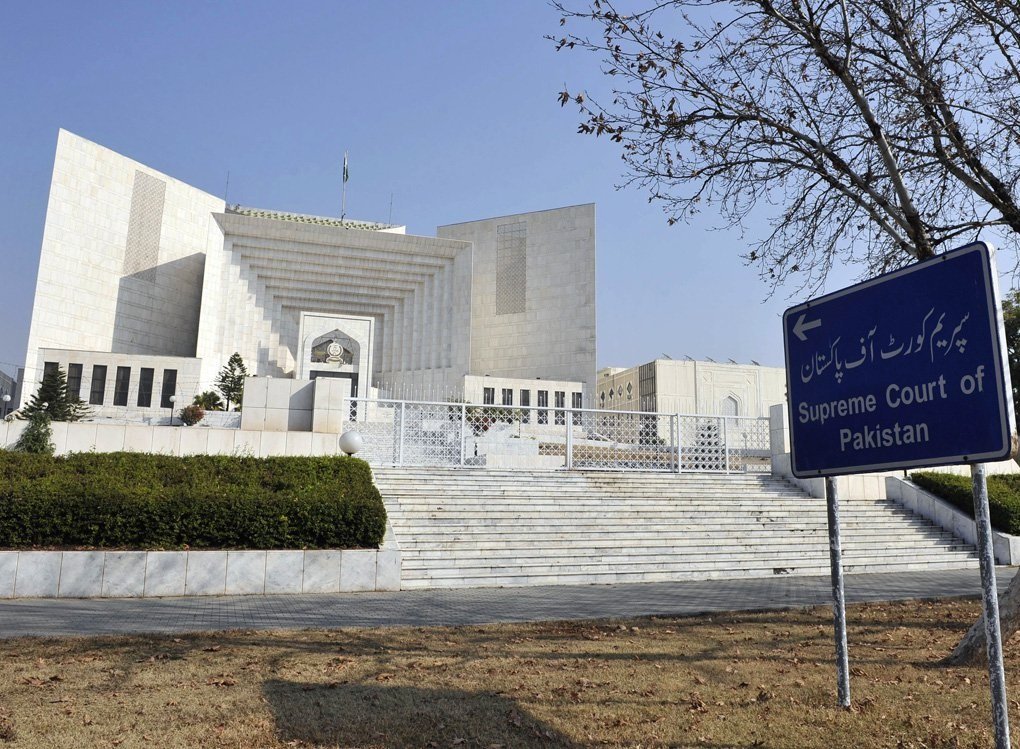
The Supreme Court has expressed serious concerns over the executive slackness in protecting the rights of inheritance of females.
"We sadly note that despite our repeatedly pointing out that effective measures must be put in place to protect the rights of inheritance of females, this has still not been done. Those few ladies who have the independence, determination and resources to take their brothers to court are left embroiled in slow grind litigation, as in the present case, which started in the year 2008 and took 13 years to culminate, having seen its way through four courts," a nine-page judgment authored by Justice Qazi Faez Isa says.
A division bench of the apex court comprising by Justice Isa and Justice Yahya Afridi heard the case wherein a sister was being deprived of inheritance.
Justice Isa while authoring the judgment said that the adage prevention is the best medicine and equally applicable when female rights are impaired.
"The state must ensure the protection of rights which is far easier, cheaper and less wasteful of public resources than restoring rights through the courts, which is laborious, expensive and needlessly wasteful of resources. In this case, a sister’s right to inheritance would have been safeguarded if the revenue authorities had exercised due care and caution, but this was not done. Either the revenue officials were inept and negligent or else complicit and corrupt, in either eventuality the system permitted the exploitation of the weak. This is all the more disconcerting in an Islamic Republic, the Constitution of which specifically protects property rights and enables the making of ‘special provision for the protection of women and children’," the judgment says.
The court noted that it is extremely regrettable that in the Islamic Republic of Pakistan, male heirs continue to deprive female heirs of their inheritance by resorting to different tactics and by employing dubious devices as was done in the instant case.
"The shares in the property of a deceased Muslim are prescribed in the Holy Quran and Shariah.”
The court said that to deny an heir his/her share in the property left by the deceased is disobedience to Almighty Allah’s decree and those who do so, while they may obtain a temporary benefit in this world, leave themselves accountable to divine punishment in the Hereafter.
| Read More: Inheritance verdict |
"The verses dealing with the laws of inheritance are followed by two verses, the first which gives good tidings to those who abide by the ‘limits set by Allah’ followed by the verse prescribing the torment of Hell for those who disobey: ‘But those who disobey Allah and His Apostle and transgress His limits will be admitted to a fire, to abide therein: And they shall have a humiliating punishment."
The judgment said that this court has repeatedly castigated attempts to deprive female heirs of their right to inheritance.
"In the case of Atta Muhammad v Mst Munir Sultan, this court noted that depriving female heirs of their inheritance has become ‘all too common’ and directed the revenue authorities to be extra vigilant. In Islamuddin v Mst Noor Jahan, the suffering and agony imposed upon female heirs was found to be most unfortunate. And, in Khair Din v Mst Salaman it was held that no benefit could be derived by those claiming rights against female heirs based on fraudulent transactions.”
The court said that the people through their elected representatives enacted the Constitution and in it set out the course for the country to take by setting out therein the Principles of Policy (‘Principles’).
"These include enabling Muslim citizens to live their lives in accordance with Islam, and promoting ‘Islamic moral standards’. Depriving females of their inheritance prescribed by Shariah violates these principles. Denying females their inheritance also undermines their economic independence, prevents a rise in their standard of living and concentrates wealth in male descendants, which offends another three principles.
"Economic deprivation of women prevents their full participation ‘in all spheres of life’ which is another principle which is violated. In Employees of Pakistan Law Commission v Ministry of Works, this court held that provisions relating to fundamental rights ought to be interpreted harmoniously with the principles of policy and this was reiterated in Lahore Development Authority v Imrana Tiwana.
"In Beena v Raja Muhammad it was held that the principles represent ‘the path and the destination that the nation has set for itself’.
"A three-member bench of the Supreme Court in the case of Attiyya Bibi Khan v Federation of Pakistan held that ‘Article 29 of the Constitution requires each organ or authority of the state to act in accordance with those principles’ and the same was echoed in Farhan Aslam v Nuzba Shaheen.”
The judgment said that the principles especially protect the under-privileged and aim at ameliorating the condition of the vulnerable and establish the well-being of the powerless. "Therefore, non-adherence to the principles affects those who are most in need of protection, those at the mercy of predators.
"The principles are ‘the conscience of the Constitution and the basis of all executive and legislative action’ as held by an 11-member bench of this court in the case of Benazir Bhutto v Federation of Pakistan."
The court lamented that almost half a century has passed since the 1973 Constitution came into effect which stipulates that the state has ‘to act in accordance with those principles’.
"The president and governors are required to annually submit ‘a report on the observance and implementation of the principles of policy’ but they are not doing so.
"A three-member bench of the Supreme Court in the case of Jawad Beg v The State had also drawn attention to this failure to comply with this constitutional provision.
"The reports to be submitted by the president and governors are a ‘mandatory duty’, akin to a performance audit of the government."
The court noted that when the required reports are not submitted by the president and the governors respectively to parliament and provincial assemblies, then these legislative bodies may not possess information which would help them legislate where there are weaknesses and disparities.
The court expected that the president and the governors shall fulfil their constitutional duty, in this regard, under Article 29(3) of the Constitution.



















COMMENTS
Comments are moderated and generally will be posted if they are on-topic and not abusive.
For more information, please see our Comments FAQ